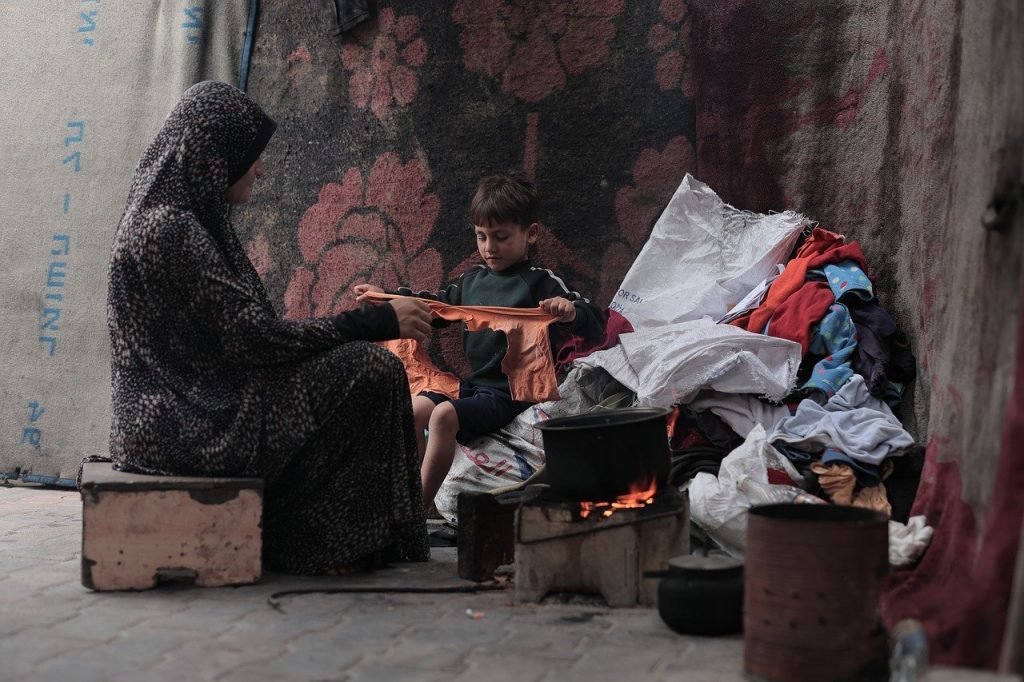
By Jonathan Brown | Thu 22nd May 2025

This week, as Israel intensifies its ground operation in Gaza and aid agencies warn of impending famine, the UK government seems to be finally taking a stand. On Tuesday, the UK joined France and Canada in issuing a joint statement condemning Israel’s ongoing aid blockade and military escalation and warning of “concrete actions” if the Israeli government fails to change course. The following day, Foreign Secretary David Lammy announced a series of new measures, including a formal pause on UK-Israel trade negotiations, targeted sanctions on illegal settlers, and the summoning of the Israeli Ambassador to the UK – a rare diplomatic move not taken since the killing of World Central Kitchen aid workers in April 2024.
These are important and long-overdue steps, signalling a shift in government rhetoric and a new willingness to intervene after months of equivocation. But in the face of daily mass atrocities in Gaza, tougher and more comprehensive measures are required to compel urgent, on-the-ground change and pave the way to just and lasting solutions.
The need for decisive international action could not be clearer. After eleven weeks of total blockade, at least 500,000 people in Gaza face a critical risk of famine. Following mounting international pressure, Israel is now allowing a “basic amount of food” to enter, but this is a fig leaf, nothing more, certainly nowhere near enough to avert mass death from starvation. The UN’s humanitarian chief has warned that 14,000 babies could die within days without immediate help. At the same time, Israel has launched a fresh ground offensive aimed at seizing yet more Palestinian territory and forcibly displacing the population, killing at least 500 Palestinians since the offensive began last week. In the West Bank, illegal settlement building, land seizures and settler violence continue to surge, with senior minister Smotrich vowing that Israel will “apply sovereignty” i.e. illegally annex the land before the current government’s term ends in 2026.
For too long, the UK government has enabled these atrocities through inaction, evasion, and quiet complicity. Even as international legal bodies have made clear that the Israeli government is plausibly committing genocide in Gaza and that its occupation of Palestinian territory is unlawful, UK ministers have carefully avoided directly acknowledging Israel’s breaches of international law, preferring instead to reference “risks” of breaches. Rather than using its leverage to press for compliance with international law, the UK has consistently sent a dangerous message: that Israel is free to violate international law with impunity.
Given the scale of past UK complicity and the urgency of the situation for millions of starving, dislocated and beleaguered Palestinians, this week’s new measures are belated steps in the right direction. But they are still totally inadequate. The government must use all available economic and diplomatic measures to pressure the Israeli government to change course. Instead, it has introduced piecemeal sanctions against select individuals and organisations which, though important in principle, are simply not generating the political pressure required to halt the killing, end the aid blockade, and stop illegal settlement expansion. A more effective move would be to impose sanctions on the senior Israeli officials openly advocating annexation and mass displacement, something the Liberal Democrats and others have long called for.
Even the decision to suspend trade negotiations, while welcome and necessary, does not go far enough. The UK must go further by ending all trade with illegal settlements and prohibiting UK companies from operating in or profiting from them. Without this, the UK remains complicit in entrenching an unlawful occupation that the International Court of Justice has found to violate the prohibition on racial segregation and apartheid.
This week’s measures also fail to address UK military support for Israel. Despite announcing a partial suspension last autumn, the government has quietly authorised an increase in arms exports to the country in the months since. Alongside this, reports of continuing British surveillance flights over Gaza raise serious questions about whether UK intelligence has been used to facilitate Israeli military operations that may amount to war crimes. Only last week, government lawyers argued in the High Court that protecting the F-35 global supply chain is more important than fulfilling the UK’s legal obligations to prevent genocide. And on Tuesday, just hours after announcing its new tougher measures, the UK sent yet another surveillance flight over Gaza. The result is a government that says one thing and does another: condemning violence outwardly while continuing to enable it behind the scenes.
If the government is serious about ending UK complicity, it must fundamentally re-evaluate its stance, and focus on creating the conditions for negotiating peace and security for the region. This means not only implementing comprehensive sanctions and a full arms embargo, but also immediately recognising an independent Palestinian state. It makes good sense to do this jointly with France, our co-signatory of the Sykes-Picot Agreement, the 1916 treaty that laid the foundation for the Palestinians’ current plight. As Lib Dem Foreign Affairs Spokesperson Calum Miller suggested in Parliament this week, this formal recognition would ideally happen at next month’s Saudi-French-led UN Summit on a two-state solution. Such a move would affirm the Palestinian people’s inalienable right to self-determination, while marking a necessary step towards addressing the deep structural inequalities at the heart of the Israel–Palestine conflict.
The government’s measures this week are a step forward, but they must go much further. We are witnessing grave violations of international law, in full view of the international community. The UK cannot meet this moment with caution and half-measures. It must respond with principle, resolve, and the political courage to act.
* Jonathan Brown is a District Councillor for Chichester North and Vice Chair of the Liberal Democrat Friends of Palestine.
